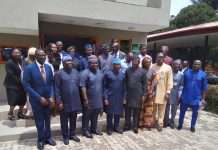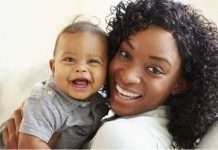
They look more often than not distressed, dejected and despaired as fate and the society many a times exclude or seclude them from joyful moments in life due to loss of a spouse. This portrays the experience of many widows in developing countries.
Widowhood in many parts of Sub-Saharan Africa is associated with psychosocial trauma, stigmatization, poverty with accompanied inequitable access to healthcare. The overwhelming shock brought about by the sudden demise of a life partner notwithstanding, the African cultural beliefs still subject widows to harmful traditional rites, which reduce their dignity, violate their rights, thereby impacting their health adversely.
The International Women Society in 2019 estimated the number of widows in Nigeria living in ‘abject poverty’ at 15 million, among world's 258 million widows, which would have significantly surpassed that four years after.
Hence, as the global community celebrates the International Women’s Day (IWD) 2024, an annual event commemorated on 8 March, it is pertinent to rally support for the unheard voices in our communities, who go through life miserably without hope in sight, especially with the global harsh economic realities.
This correspondent’s one-on-one chat with some of these underprivileged women gives credence to the theme of this year’s global advocacy which is “Invest in women: Accelerate progress” as they expressed their unbearable economic burden of raising children alone, with it attendant impacts on their well-being.
Donald’s uncontrollable tears, 5 years on

“I usually try to hold back the tears most times when I’m overwhelmed, but it will eventually flow, as no help is near. The more I try to forget about the whole thing, the harder it becomes for me as it’s impossible for me to handle the situation alone, though I know God has always been with me”, Mrs Angela Donald lamented.
Donald, a 56-year-old widow, who sells food by the roadside in Lagos, narrated how she and her four children have been deserted by her late husband ‘s relatives, since he passed on. As if that was not enough, she said the little cash gift received during the wake-keep of her late husband was also stolen by one of his relatives, leaving her and the children to resort to begging to realise transport fair to their village for the funeral.
“My husband died on 19 September, 2019. Since then, none of his relatives has responded to me, and immediately after the burial, everybody left
“The same relatives stole the money, about N250,000, kind-hearted friends and families gave us at his wake- keep service, while we had to borrow money form people to travel to the village at that time and for the burial, it wasn’t easy but God was on our side.’, she explained.
Donald’s challenge is compounded by the financial pressure of training two of her daughters in higher institutions, as she also complained about the frequent malaria episodes they experience due to their poor environment with terrible environmental issues.
“I have two daughters in higher institution, whose school fees I try to pay by all means. Aside that, we frequently fall sick of malaria due to the filthy area we live alongside body pains because of daily stress without access to healthcare, as I cannot afford hospital bill.
“I really want the government to assist me firstly to provide a better shelter for me and my children, because we live in a swampy area in Mende, Maryland, and whenever it rains, our minds are always in our hands. Again, I’m appealing for sponsorship for my daughters education, and funding to expand my business. I will be very happy if my family could be assisted to ease our financial burden and improve our health”, she appealed.
Olowo‘s loss of business capital

The case of Mrs Esther Olowo, a 58- year-old widow, who resides in the Ikorodu axis of Lagos State is very similar to that of Donald. She explained how it’s been pretty difficult to fill the vacuum the death of her husband created.
Olowo, an enterprising woman who dealt on wholesales of frozen foods, rice, beans, etc, before the demise of her husband, said she lost all her business capital to the illness that eventually claimed the life of her spouse. Ever since then, “I have not recovered from the emotional and financial loss”, she stated,
“Five years after his passing, the gap still exists in terms of emotional and psychological trauma, as well as business funding. I just depend on God for divine health because I can’t afford any healthcare plan with my four children. We also rely on herbs around us and visit chemists if the need arises.
“The most painful part of it, was that he told me he acquired a landed property at Ajah area of Lagos Stste, but he couldn’t show me the place before his demise.
“So, since then, I have been the only one responsible for the upkeep of the children, and my business has nosedive without capital to boost it. That is why I have resorted to this petty trading for survival”, she quipped.
She however besought government and well meaning Nigerians to come to her aid. “If the government can assist me with funding to boost my business, I will appreciate it, as the regular traumatic feeling of his death amidst my needs will no longer arise.”
Ilesanmi’s ordeals

For Mrs Deborah Ilesanmi, life has been extremely difficult since she lost her husband seven years ago.
“I have been going through incredible stress since his passing in 2018, but God has been helping me and the four children He blessed me with.”
Like her counterparts, the 49-year-old widow disclosed her inability to access healthcare due to financial constraints, despite existing health condition she is living with.
Although she attested to receiving minor support, from her church and the mistress she works with, in addition to the token she generates from her petty trading, but she pleaded for the restoration of her own business, in order to be able to cater for the needs of her children.
“It will be well appreciated if the government or other organisations can assist me financially to set up my business so I can cater more for my family,” she appealed.
Government’s role in empowerment and inclusion of widows
Explaining government’s role in alleviating the poverty and improving healthcare of widows, the Special Adviser to Governor Babajide Sanwo-Olu on Health, Mrs Kemi Ogunyemi, in an interview with our correspondent, said the Ministry of Women Affairs and Poverty Alleviation has all sorts of programmes throughout the year for widow, from skills acquisition to financial empowerment.
As far as health is concerned, all citizens of the state are encouraged to purchase Ilera-Eko health insurance.
“We encourage all citizens to purchase Ilera-Eko, health insurance.
“However, in the next couple of months, Mr Governor is going to be giving out free ilera Eko to 1000 vulnerable lagos residents, per local government, who are registered with LASRRA, for one year. This initiative includes widows.
“Also, in a few weeks, each primary health district will embark on free medical care/drugs bi-monthly for 2 months. This medical outreach will see 24,000 residents gain free access to healthcare,” she asserted.
However, our interactions with some beneficiaries of the one-year free Ilera-Eko health insurance scheme in Ikorodu, revealed a weakness in the scheme. They contested the free nature of the package, saying the only benefit they derive from it is free consultation, as they still have to pay out-of-pocket for most of the essential medicines prescribed for them.













